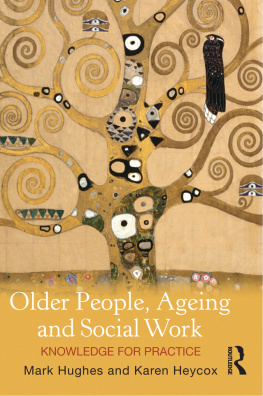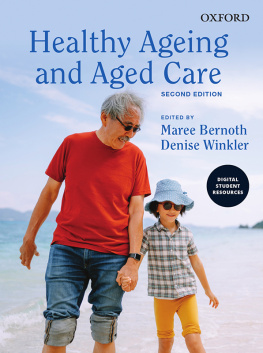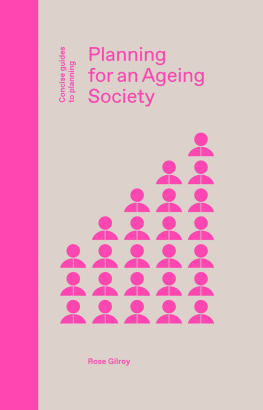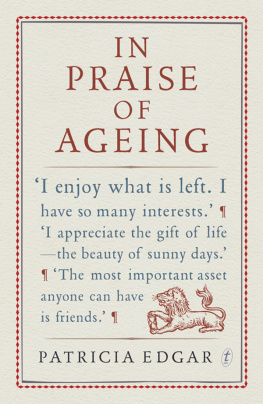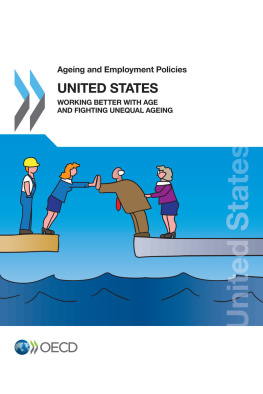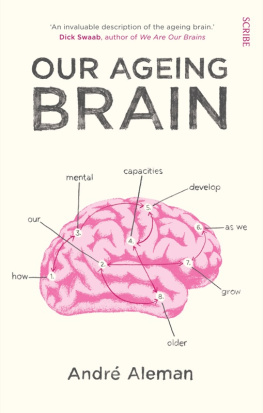Asghar Zaidi - Well-Being of Older People in Ageing Societies
Here you can read online Asghar Zaidi - Well-Being of Older People in Ageing Societies full text of the book (entire story) in english for free. Download pdf and epub, get meaning, cover and reviews about this ebook. year: 2008, publisher: Routledge, genre: Politics. Description of the work, (preface) as well as reviews are available. Best literature library LitArk.com created for fans of good reading and offers a wide selection of genres:
Romance novel
Science fiction
Adventure
Detective
Science
History
Home and family
Prose
Art
Politics
Computer
Non-fiction
Religion
Business
Children
Humor
Choose a favorite category and find really read worthwhile books. Enjoy immersion in the world of imagination, feel the emotions of the characters or learn something new for yourself, make an fascinating discovery.

- Book:Well-Being of Older People in Ageing Societies
- Author:
- Publisher:Routledge
- Genre:
- Year:2008
- Rating:4 / 5
- Favourites:Add to favourites
- Your mark:
- 80
- 1
- 2
- 3
- 4
- 5
Well-Being of Older People in Ageing Societies: summary, description and annotation
We offer to read an annotation, description, summary or preface (depends on what the author of the book "Well-Being of Older People in Ageing Societies" wrote himself). If you haven't found the necessary information about the book — write in the comments, we will try to find it.
Well-Being of Older People in Ageing Societies — read online for free the complete book (whole text) full work
Below is the text of the book, divided by pages. System saving the place of the last page read, allows you to conveniently read the book "Well-Being of Older People in Ageing Societies" online for free, without having to search again every time where you left off. Put a bookmark, and you can go to the page where you finished reading at any time.
Font size:
Interval:
Bookmark:

A Series Edited by the European Centre


2 Park Square, Milton Park, Abingdon, Oxon OX14 4RN
711 Third Avenue, New York, NY 10017, USA
Product or corporate names may be trademarks or registered trademarks, and are used only for identification and explanation without intent to infringe.
European Centre for Social Welfare Policy and Research
Berggasse 17, 1090 Vienna, Austria
(1927 - 2000)
Introduction
Conceptualising Well-being of Older People
Methodological Choices in Measuring Well-being
The British Pension and Social Benefit System
Coupling of Disadvantages: An Assessment of Income Deprivation and Limiting Health in Old Age
Income Mobility in Old Age
Snakes and Ladders : Covariates of Income Mobility in Old Age
Synthesizing Discussion and Conclusions
Setting the Context
Introduction
- Rising longevity. It is less unusual nowadays to make it through to old age, a fact largely attributable to a combination of advances in public health (e.g. water purification and improved sanitation), medical technology (e.g. treatment of heart and lung diseases) and improving standards of living (e.g. better nutrition). This rise in human life expectancy is rated, quite justifiably, as one of the most remarkable advances of recent times. Thus, the fact that we spend an increasingly longer time of our life in older age makes it more important to gain a holistic understanding of the level of the economic and social resources available to us in old age and of the dynamics of resources during this phase of later life.
- Interlinkage with earlier phases of life: The dual systems of social insurance and social assistance in modern welfare states play an important role in determining older people's entitlements to pension rights. Individual entitlements in old age are, in general, linked with experiences during earlier phases of life, such as the labour market association, marital association with someone in the labour market, child and adult care responsibilities, and residence in the country. Thus, an evaluation of personal welfare in old age offers us insights into how differential experiences of earlier phases of life and their treatment by the welfare system impact upon resources available in old age.
- Current environment of population ageing: During the latter part of the past century, the trend in longevity has been accompanied by a drop in fertility rates, a factor attributable largely to advances in the emancipation of women. Together, these trends continue to shift the distribution of the population in most developed countries in such a way that the ratio of elderly to non-elderly people, and therefore the average age of the population, is rising. Nor are these trends likely to abate in the near future, so that societies experiencing this demographic shift - commonly referred to as ageing societies - now face new challenges, new policy directions. In this environment, a substantive research focus on older people's resources is imperative so as to design effective social and economic policies to guard against the unprecedented rise in public social expenditures and avoid the moral hazard of poverty in old age.
Font size:
Interval:
Bookmark:
Similar books «Well-Being of Older People in Ageing Societies»
Look at similar books to Well-Being of Older People in Ageing Societies. We have selected literature similar in name and meaning in the hope of providing readers with more options to find new, interesting, not yet read works.
Discussion, reviews of the book Well-Being of Older People in Ageing Societies and just readers' own opinions. Leave your comments, write what you think about the work, its meaning or the main characters. Specify what exactly you liked and what you didn't like, and why you think so.

